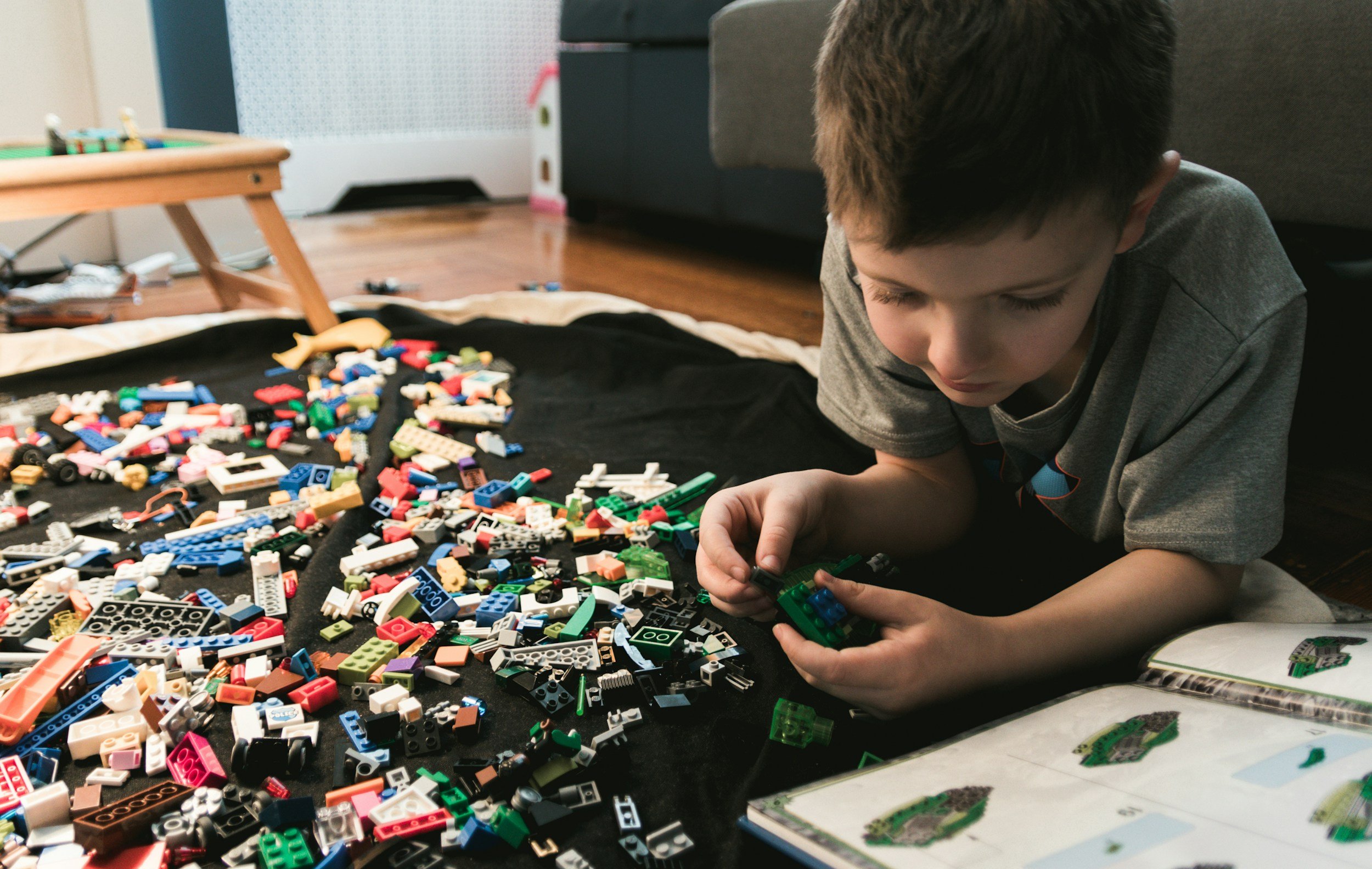
Play therapy for children
AGES 3 AND UP
It can be so difficult to see your child struggle.
What is play therapy?
Play therapy is a type of psychotherapy that is used to help children deal with psychological, emotional, or behavioral problems. It is based on the idea that play is a child's natural medium for self-expression and can be used as a way for children to communicate their thoughts and feelings.
During play therapy, a child is given the opportunity to play with a variety of toys and materials in a safe and supportive environment. The therapist observes the child's play and may also engage in play with the child in order to better understand the child's thoughts, feelings, and behaviors. The therapist may use a range of techniques, such as asking questions, making suggestions, or providing feedback, to help the child explore and work through any issues they may be experiencing.
Play therapy can be effective in helping children to cope with a range of issues, including anxiety, depression, trauma, and behavioral problems. It is often used in conjunction with other types of therapy or interventions, such as family therapy or sometimes medication.
HOW PLAY THERAPY WORKS
Play therapy is a therapeutic approach designed to help children express and process their emotions through play. The process involves several key components:
Creating a Safe Environment
The therapist establishes a comfortable and inviting space filled with a variety of toys, art materials, and games. This environment encourages children to explore and engage in a way that feels natural and secure.
2. Using Play as a Form of Communication
Children often find it easier to communicate through play rather than verbal language. Through interactions with toys and activities, they can express complex feelings, fears, and experiences that may be difficult to articulate.
3. Guided Play
Therapists gently guide the play to facilitate exploration of specific emotions or themes. This may include asking open-ended questions or introducing scenarios that encourage children to reflect on their feelings and behaviors.
4. Building Trust and Rapport
A strong therapeutic relationship is essential for effective play therapy. The therapist fosters trust and safety, allowing children to feel comfortable in sharing their thoughts and emotions.
5. Processing Emotions and Experiences
Through the act of play, children can reenact and work through their experiences, helping them to process emotions in a safe and manageable way. This exploration fosters greater self-awareness and emotional understanding.
6. Reflection and Learning
At the conclusion of sessions, therapists often engage children in discussions about their play experiences, helping them connect their insights to real-life situations. This reflection enhances their ability to apply learned skills outside of therapy.
7. Involving Caregivers
In some cases, therapists may involve parents or caregivers to support the child’s progress and reinforce strategies learned during sessions at home.
Overall, play therapy provides a dynamic and effective approach for children to navigate emotional challenges, develop coping mechanisms, and foster resilience in a supportive and engaging environment.
Play Therapy can help your child improve:
Emotional Expression: Play therapy provides a safe space for children to express their feelings. Through play, they can communicate emotions they might not have the words for, helping them process feelings like anger, sadness, or anxiety.
Social Skills: Engaging in play activities can enhance a child's ability to interact with others. They learn important skills like sharing, taking turns, and cooperating, which are crucial for building friendships and social relationships.
Coping Mechanisms: Play therapy teaches children how to cope with challenges and stress. They can explore different scenarios and learn problem-solving skills, helping them manage difficult situations more effectively.
Self-Esteem and Confidence: Successfully navigating play scenarios can boost a child's confidence. As they experiment and achieve small goals in a playful context, their self-esteem often improves.
Behavior Regulation: Through play, children can explore the consequences of their actions in a non-threatening environment. This can help them understand and regulate their behavior better.
Trauma Processing: For children who have experienced trauma, play therapy can be a way to work through their experiences safely. It allows them to reenact or express trauma-related feelings, facilitating healing.
Cognitive Development: Engaging in play activities promotes critical thinking, creativity, and problem-solving skills. Children can practice planning and executing tasks, which helps in cognitive development.
Your child has incredible gifts, strengths, & potential.
WE’RE HERE TO HELP THEM DISCOVER IT.
FAQS
Common questions about therapy for children
-
Play therapy is primarily designed for children ages 3 to 12, although some techniques can be adapted for older children and even teenagers, depending on their needs and developmental stage.
-
The duration of play therapy can vary based on individual needs. Sessions typically last 30 to 50 minutes and may occur weekly or biweekly. The overall length of therapy can range from a few sessions to several months, depending on the child's progress and goals.
-
Signs that a child may benefit from play therapy include persistent behavioral issues, difficulty expressing emotions, withdrawal from social interactions, changes in mood or behavior, or difficulty coping with significant life changes or trauma.
-
Play therapy can be effective for a range of issues, including anxiety, depression, trauma, behavioral problems, grief, and difficulties with social skills. It provides children a safe outlet to explore and address these challenges.
-
Yes, involving parents or caregivers can enhance the effectiveness of play therapy. Therapists may occasionally include parents in sessions to provide support, share insights, and reinforce strategies at home.

